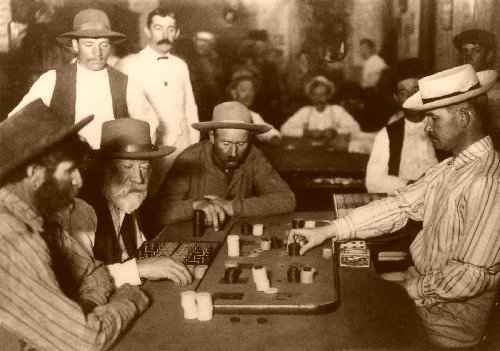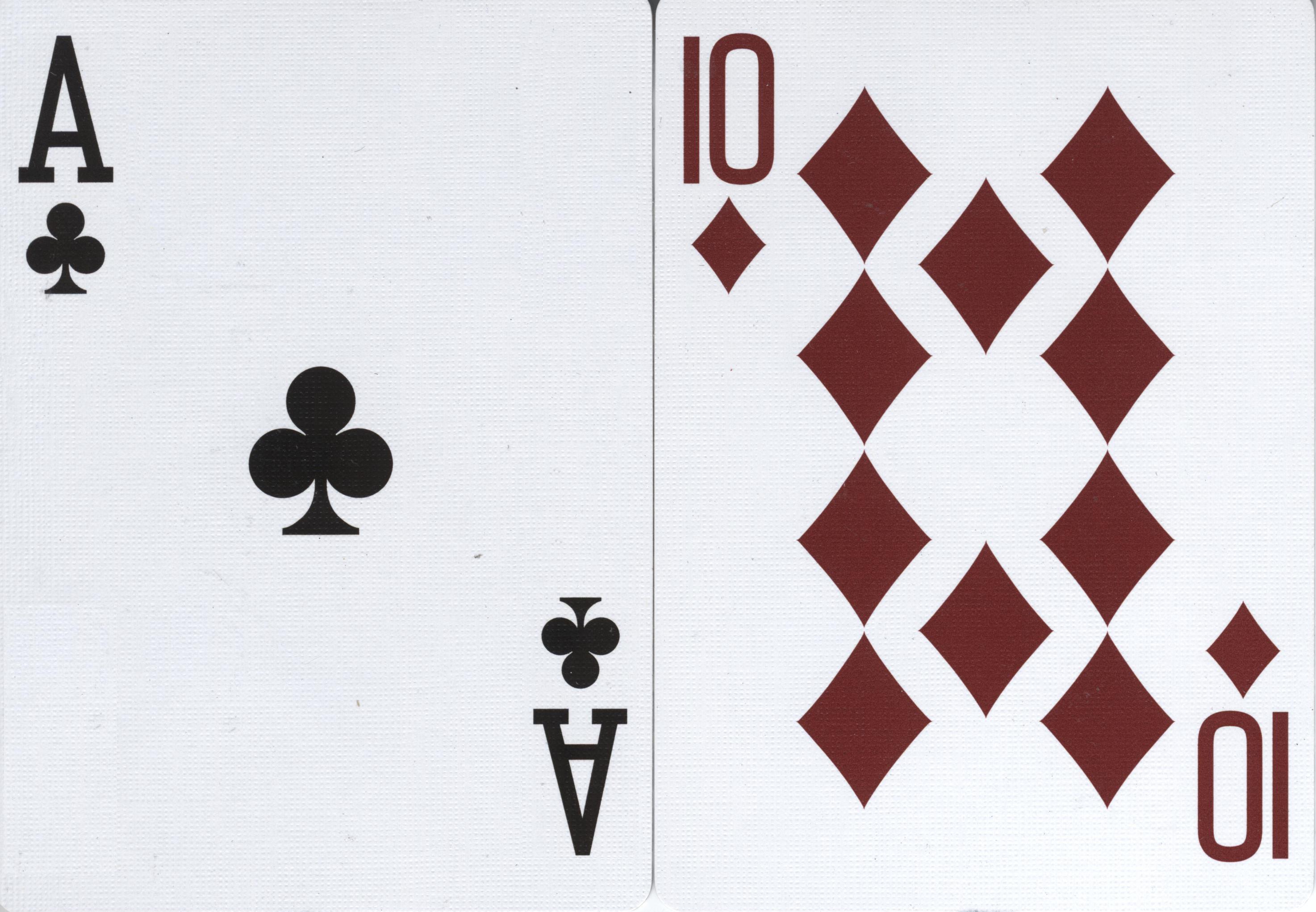|
Ridotto
Il Ridotto (Italian : "The Private Room") was a wing of Venice's Palazzo Dandolo near the church of San Moisè. In 1638, it was converted at the behest of Venice's city leaders into a government-owned gambling-house. Il Ridotto was the site of the West's first public, legal mercantile casino, opening several centuries after some gambling establishments in China. Etymology and usage The term "ridotto" (plural: "ridotti") comes from the Italian word "ridurre", meaning to "close off" or "make private". Whatever its etymology, it ordinarily meant the foyer of a theater, where people would go for refreshments during intermissions. It also referred to several illegal, privately owned gambling clubs that offered games of chance to members of Venice's nobility in the city's Rialto District. These clubs came into being after the Venetian authorities attempted to ban games of chance that had spontaneously sprung up in the city's streets. Realizing it could not effectively prevent citizens ... [...More Info...] [...Related Items...] OR: [Wikipedia] [Google] [Baidu] |
Pietro Longhi
Pietro Longhi (1702 or November 5, 1701 – May 8, 1785) was a Venetian painter of contemporary genre scenes of life. Biography Pietro Longhi was born in Venice in the parish of Saint Maria, first child of the silversmith Alessandro Falca and his wife, Antonia. He adopted the Longhi last name when he began to paint. He was initially taught by the Veronese painter Antonio Balestra, who then recommended the young painter to apprentice with the Bolognese Giuseppe Maria Crespi, who was highly regarded in his day for both religious and genre painting and was influenced by the work of Dutch painters. Longhi returned to Venice before 1732. He was married in 1732 to Caterina Maria Rizzi, by whom he had eleven children (only three of which reached the age of maturity). Among his early paintings are some altarpieces and religious themes. His first major documented work was an altarpiece for the church of San Pellegrino in 1732. In 1734, he completed frescoes in the walls and ceiling o ... [...More Info...] [...Related Items...] OR: [Wikipedia] [Google] [Baidu] |
Casino
A casino is a facility for certain types of gambling. Casinos are often built near or combined with hotels, resorts, restaurants, retail shopping, cruise ships, and other tourist attractions. Some casinos are also known for hosting live entertainment, such as stand-up comedy, concerts, and sports. and usage ''Casino'' is of Italian origin; the root means a house. The term ''casino'' may mean a small country villa, summerhouse, or social club. During the 19th century, ''casino'' came to include other public buildings where pleasurable activities took place; such edifices were usually built on the grounds of a larger Italian villa or palazzo, and were used to host civic town functions, including dancing, gambling, music listening, and sports. Examples in Italy include Villa Farnese and Villa Giulia, and in the US the Newport Casino in Newport, Rhode Island. In modern-day Italian, a is a brothel (also called , literally "closed house"), a mess (confusing situation), or a noisy ... [...More Info...] [...Related Items...] OR: [Wikipedia] [Google] [Baidu] |
Italian Language
Italian (''italiano'' or ) is a Romance language of the Indo-European language family that evolved from the Vulgar Latin of the Roman Empire. Together with Sardinian, Italian is the least divergent language from Latin. Spoken by about 85 million people (2022), Italian is an official language in Italy, Switzerland (Ticino and the Grisons), San Marino, and Vatican City. It has an official minority status in western Istria (Croatia and Slovenia). Italian is also spoken by large immigrant and expatriate communities in the Americas and Australia.Ethnologue report for language code:ita (Italy) – Gordon, Raymond G., Jr. (ed.), 2005. Ethnologue: Languages of the World, Fifteenth edition. Dallas, Tex.: SIL International. Online version Itali ... [...More Info...] [...Related Items...] OR: [Wikipedia] [Google] [Baidu] |
Poker
Poker is a family of comparing card games in which players wager over which hand is best according to that specific game's rules. It is played worldwide, however in some places the rules may vary. While the earliest known form of the game was played with just 20 cards, today it is usually played with a standard deck, although in countries where short packs are common, it may be played with 32, 40 or 48 cards.Parlett (2008), pp. 568–570. Thus poker games vary in deck configuration, the number of cards in play, the number dealt face up or face down, and the number shared by all players, but all have rules that involve one or more rounds of betting. In most modern poker games, the first round of betting begins with one or more of the players making some form of a forced bet (the '' blind'' or ''ante''). In standard poker, each player bets according to the rank they believe their hand is worth as compared to the other players. The action then proceeds clockwise as each play ... [...More Info...] [...Related Items...] OR: [Wikipedia] [Google] [Baidu] |
1638 Establishments In The Republic Of Venice
Events January–March * January 4 – **A naval battle takes place in the Indian Ocean off of the coast of Goa at South India as a Netherlands fleet commanded by Admiral Adam Westerwolt decimates the Portuguese fleet. **A fleet of 80 Spanish ships led by Governor-General Sebastián Hurtado de Corcuera attacks the Sultanate of Sulu in the Philippines by beginning an invasion of Jolo island, but Sultan Muwallil Wasit I puts up a stiff resistance. * January 8 – The siege of Shimabara Castle ends after 27 days in Japan's Tokugawa shogunate (now part of Nagasaki prefecture) as the rebel peasants flee reinforcements sent by the shogun Tokugawa Iemitsu. * January 22 – The Shimabara and Amakusa rebels, having joined up after fleeing the shogun's troops, begin the defense of the Hara Castle in what is now Minamishimabara in the Nagasaki prefecture. The siege lasts more than 11 weeks before the peasants are killed. * February 28 – The Scottish National Covenant ... [...More Info...] [...Related Items...] OR: [Wikipedia] [Google] [Baidu] |
Casinos In Italy
{{disambiguation, surname ...
Casinos may refer to: * Casinos, Valencia, municipality in Spain * David Casinos (born 1972), Spanish Paralympian athlete * The Casinos, an American popular music group See also *Casino (other) A casino is a facility that houses and accommodates certain types of gambling activities. Casino may also refer to: Places * Casino, New South Wales, Australia ** Casino railway station, New South Wales, Australia ** The 20th-century electoral d ... [...More Info...] [...Related Items...] OR: [Wikipedia] [Google] [Baidu] |
Gerolamo Mengozzi Colonna
Gerolamo Mengozzi Colonna (1688 – Venice, 27 October 1774) was an Italian painter, mostly of frescoed quadratura. Biography Born in Ferrara, Gerolamo was a pupil of the painters of architectural perspective painters Antonio Felice Ferrari and Francesco Scala in Emilia-Romagna. He moved to Venice by 1716, where he began collaborations that spanned over four decades with Giovanni Battista Tiepolo and his son Giandomenico. By 1716, he signs a contract with Mattia Bortoloni to decorate in fresco the Villa Cornaro in Piombino Dese for the patrician Andrea Cornaro. It is presumed that the two latter artists collaborated in decorating the octagonal room of the Villa Morosini Vendramin Calergi in Fiesso Umbertiano. Mengozzi's first collaboration with Tiepolo was the decoration of the hall on the first floor (1719-1720) of the Villa Baglioni in Massanzago, depicting the ''Myth of Phaeton'' on the walls and the ''Triumph of Aurora'' on the ceiling. This was followed by the ''Apotheos ... [...More Info...] [...Related Items...] OR: [Wikipedia] [Google] [Baidu] |
Francesco Guardi
Francesco Lazzaro Guardi (; 5 October 1712 – 1 January 1793) was an Italian painter, nobleman, and a member of the Venetian School. He is considered to be among the last practitioners, along with his brothers, of the classic Venetian school of painting. In the early part of his career he collaborated with his older brother Gian Antonio in the production of religious paintings. After Gian Antonio's death in 1760, Francesco concentrated on ''vedute''. The earliest of these show the influence of Canaletto, but he gradually adopted a looser style characterized by spirited brush-strokes and freely imagined architecture. Biography Francesco Guardi was born in Venice into a family of nobility from Trentino. His father Domenico (born in 1678) and his brothers Niccolò and Gian Antonio were also painters, later inheriting the family workshop after the father's death in 1716. They probably all contributed as a team to some of the larger commissions later attributed to Francesco. His sist ... [...More Info...] [...Related Items...] OR: [Wikipedia] [Google] [Baidu] |
Faro (card Game)
Faro ( ), Pharaoh, Pharao, or Farobank is a late 17th-century French gambling game using cards. It is descended from Basset, and belongs to the Lansquenet and Monte Bank family of games due to the use of a banker and several players. Winning or losing occurs when cards turned up by the banker match those already exposed. It is not a direct relative of poker, but Faro was often just as popular due to its fast action, easy-to-learn rules, and better odds than most games of chance. The game of Faro is played with only one deck of cards and admits any number of players. Popular in North America during the 1800s, Faro was eventually overtaken by poker as the preferred card game of gamblers in the early 1900s. Variants include German Faro, Jewish Faro, and Ladies' Faro. History The earliest references to a card game named ''Pharaon'' (French for "Pharaoh") are found in Southwestern France during the reign of Louis XIV. Basset was outlawed in 1691, and Pharaoh emerged several ye ... [...More Info...] [...Related Items...] OR: [Wikipedia] [Google] [Baidu] |
Blackjack
Blackjack (formerly Black Jack and Vingt-Un) is a casino banking game. The most widely played casino banking game in the world, it uses decks of 52 cards and descends from a global family of casino banking games known as Twenty-One. This family of card games also includes the British game of Pontoon, the European game, Vingt-et-Un and the Russian game Ochko. Blackjack players do not compete against each other. The game is a comparing card game where each player competes against the dealer. History Blackjack's immediate precursor was the English version of '' twenty-one'' called ''Vingt-Un'', a game of unknown (but likely Spanish) provenance. The first written reference is found in a book by the Spanish author Miguel de Cervantes. Cervantes was a gambler, and the protagonists of his " Rinconete y Cortadillo", from ''Novelas Ejemplares'', are card cheats in Seville. They are proficient at cheating at ''veintiuna'' (Spanish for "twenty-one") and state that the object of the gam ... [...More Info...] [...Related Items...] OR: [Wikipedia] [Google] [Baidu] |
Palazzo Dandolo
The Hotel Danieli is a palatial five-star hotel in Venice, Italy. The central wing of the hotel was built as the Palazzo Dandolo at the end of the 14th century, by one of the Dandolo families. CNN cites it as one of the top five "lavish hotels" in the city. Location The hotel's main building is the Palazzo Dandolo, close to St. Mark's Square, with a rear facade on the Riva degli Schiavoni's quayside promenade overlooking the Saint Mark's Basin. It adjoins a number of buildings dated to the 14th and 15th century. History The structure was built at the end of the 14th century by the Dandolos, a noble Venetian family. In the 16th century the building was divided into three sections for different members of the family. The richly embellished building, which gives the appearance of a single unit from the exterior, was then the venue of social gatherings and lavish parties. In the 17th century, ownership was with the Mocenigo and the Bernardo families who continued to hold grand soci ... [...More Info...] [...Related Items...] OR: [Wikipedia] [Google] [Baidu] |








